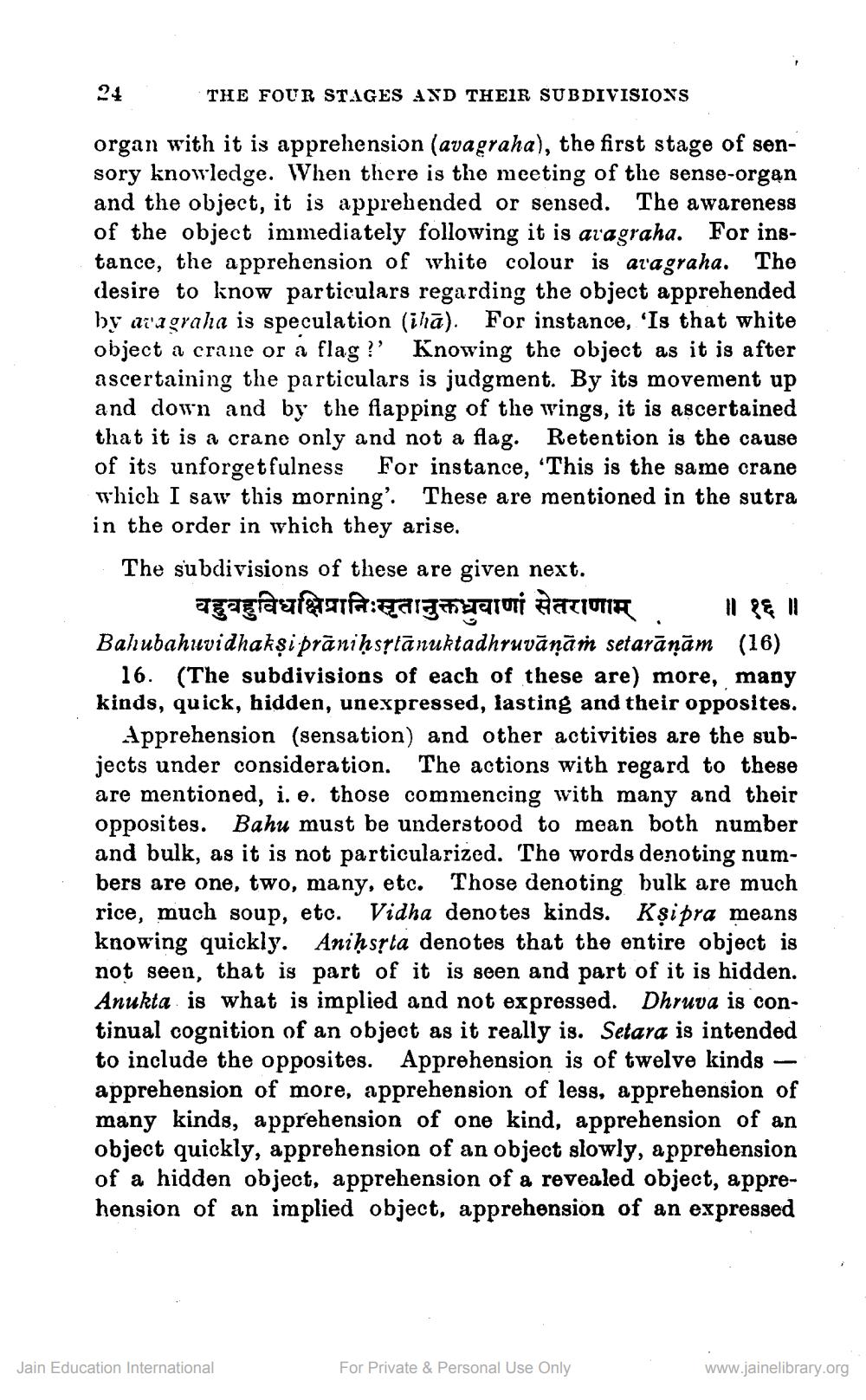________________
THE FOUR STAGES AND THEIR SUBDIVISIONS
organ with it is apprehension (avagraha), the first stage of sensory knowledge. When there is the meeting of the sense-organ and the object, it is apprehended or sensed. The awareness of the object immediately following it is aragraha. For instance, the apprehension of white colour is aragraha. The desire to know particulars regarding the object apprehended by aragraha is speculation (ilā). For instance, 'Is that white object a crane or a flag?' Knowing the object as it is after ascertaining the particulars is judgment. By its movement up and down and by the flapping of the wings, it is ascertained that it is a crane only and not a flag. Retention is the cause of its unforgetfulness For instance, This is the same crane which I saw this morning'. These are mentioned in the sutra in the order in which they arise. The subdivisions of these are given next.
वहुबहुविधक्षिप्रानिःसृतानुक्तध्रुवाणां सेतराणाम् . ॥ १६ ॥ Bahubahuvidhakşi prāniņsștānuktadhruvāņāṁ setarāņām (16)
16. (The subdivisions of each of these are) more, many kinds, quick, hidden, unexpressed, lasting and their opposites.
Apprehension (sensation) and other activities are the subjects under consideration. The actions with regard to these are mentioned, i. e. those commencing with many and their opposites. Bahu must be understood to mean both number and bulk, as it is not particularized. The words denoting numbers are one, two, many, etc. Those denoting bulk are much rice, much soup, etc. Vidha denotes kinds. Ksipra means knowing quickly. Aniḥssta denotes that the entire object is not seen, that is part of it is seen and part of it is hidden. Anukta is what is implied and not expressed. Dhruva is continual cognition of an object as it really is. Setara is intended to include the opposites. Apprehension is of twelve kinds — apprehension of more, apprehension of less, apprehension of many kinds, apprehension of one kind, apprehension of an object quickly, apprehension of an object slowly, apprehension of a hidden object, apprehension of a revealed object, apprehension of an implied object, apprehension of an expressed
Jain Education International
For Private & Personal Use Only
www.jainelibrary.org




